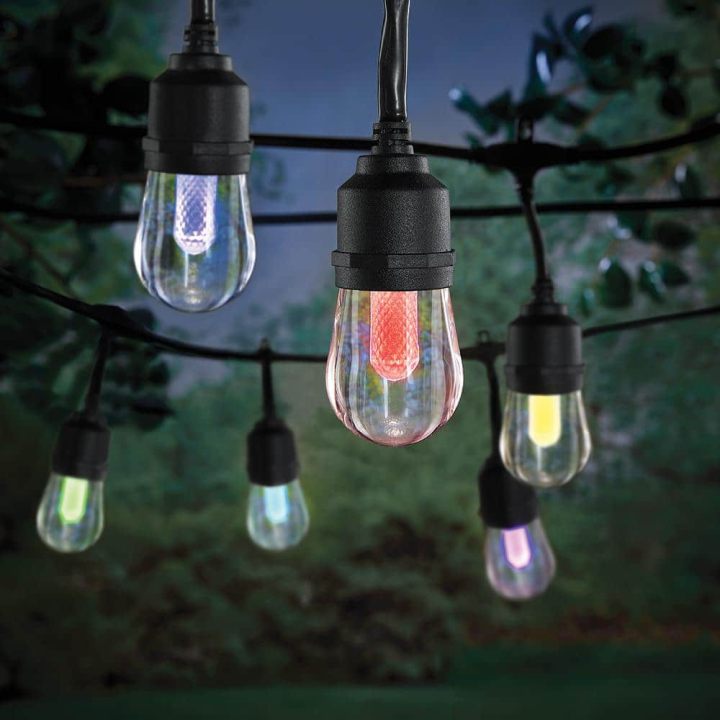Outdoor lighting is not only a functional necessity for your home, but it’s also a great way to add another layer of style. With a little planning and by learning some design basics, you can make a lighting plan that meets your needs and catches the eye of your neighbors.
The basic cover lighting techniques

Let’s go over some of the basic types of outdoor lighting so you have a sense of options.
- Silhouette: By lighting a wall behind a key subject, you can make it stand out more prominently.
- Shadowing: Projecting light directly onto a subject can cast stark shadows on the surfaces behind it. Angle the light from below for a particularly spooky effect.
- Wall-washing: Pointing broad, dim lights against larger walls can brighten the whole home without highlighting specific features.
- Grazing: Running a continuous light directly at the base of a wall casts shadows upwards, which can define roughly-textured surfaces.
- Up-lighting: Lights placed close to the base of subjects can provide dramatic emphasis when pointed upwards.
- Down-lighting: Down-lighting is placed above a subject and highlights it from there to create a serene atmosphere.
- Moonlighting: mounting a light within a tree and casting it downwards produces, wide, dramatic shadows through its branches.
- Path: Walkways need lights if only for safety reasons and should run the entire length of the path.
- Accenting: Accent lights focus light on very specific subjects. This effect can be an especially impressive plant, for example.
Do outside lights need to be on their own circuit?
Outdoor lights don’t necessarily need to be on their own circuit, but you may want them to be for safety and additional control. Outdoor outlets have ground fault circuit interrupters (GFCI), which immediately cut the circuit when it detects that current is leaking into the ground. This action will happen when a light’s weatherproofing fails and water seeps into the circuitry. So even if your outdoor lights are on the same breaker as your indoor appliances, outdoor outlets should catch any problems before they spread elsewhere.
What is a good number of lumens for outdoor lighting?
The needed lumen rating on your outdoor lights will depend on where you’re pointing them. Path lighting doesn’t require much since each light isn’t illuminating a huge area. With those, you can get away with 100 lumens or so. If you’re lighting up a whole patio, you’ll likely want around 1,000 lumens, depending on the size of the area and how much you want to balance a cozy atmosphere versus useful lighting. Security lights that aim for maximum distance can reach upwards of 3,000 lumens.
Which outdoor lights are best for a garden?
Generally, you’ll want to ensure the lights in your garden are waterproof. In order to avoid running wires to the remote corners of the garden, it may be worth looking at solar-powered outdoor lights which can act independently. Assuming you’re looking for general ambient lighting to fill the garden rather than intense lighting on a single subject, you won’t need especially high brightness, though you may need quite a few lights to provide cover for a larger surface area.
How high should an outdoor light be mounted?
Outdoor sconces should be 66 inches high, measured from the center of the fixture. If you’re mounting lights on posts, they should be 7 feet high. If you’re placing lights above doorways or windows, a good rule of thumb is to take a quarter of the height of the feature and add that to the top to determine light placement.
How far apart should exterior lights be?
Exterior lights should be around 6 feet apart, depending on the brightness. Some applications, like stairs, may demand more consistent lighting, in which case you would want to space them about three feet apart.
With the fundamentals of outdoor lighting placement covered, you can start digging into the fun stuff, like using smart lights to set schedules, enhance the atmosphere, and sync with music.
Editors’ Recommendations
Credit: Source link


Comments are closed.